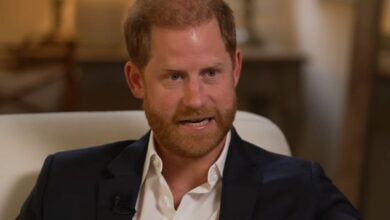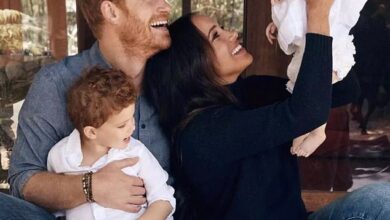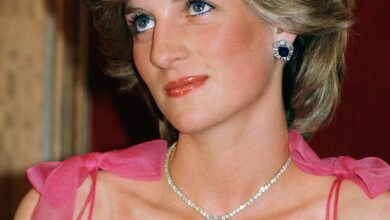Boris Johnson’s ‘manly pep talk’ with Prince Harry was not the first time PMs have advised the royals during a crisis: How John Major counselled Charles and Diana – and Stanley Baldwin clashed with Edward VIII
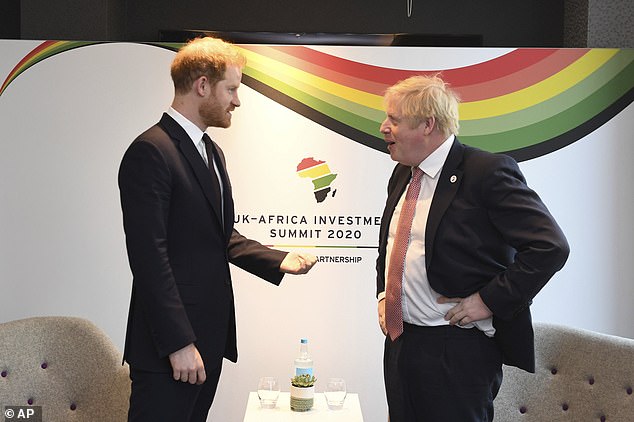
Boris Johnson‘s revelation that he gave Prince Harry a ‘manly pep talk’ to try to convince him not to leave life in the UK may not surprise seasoned royal watchers.
For it was just the latest example of prime ministers being dragged in to offer advice to senior royals at times of personal crisis.
In the Netflix series The Crown, the late Queen is seen asking the then prime minister, John Major, to mediate in the disintegrating marriage of Charles and Diana.
The cricket-mad Sir John, who is portrayed by Jonny Lee Miller, agrees to act as an ‘umpire’ for the couple.
In reality he didn’t officially mediate, though he reportedly offered ‘support and guidance.’
In his biography of Sir John, Anthony Seldon writes that the PM offered advice to the couple but that it was ‘to no avail’.
When it became clear that the marriage was ‘unsustainable’, his prime concern became the ‘constitutional position’, given Charles’s status as the future monarch and the fact that if the couple did not divorce, Diana would still be Queen on his accession.

Boris Johnson ‘s revelation that he gave Prince Harry a ‘manly pep talk’ to try to convince him not to leave life in the UK may not surprise seasoned royal watchers
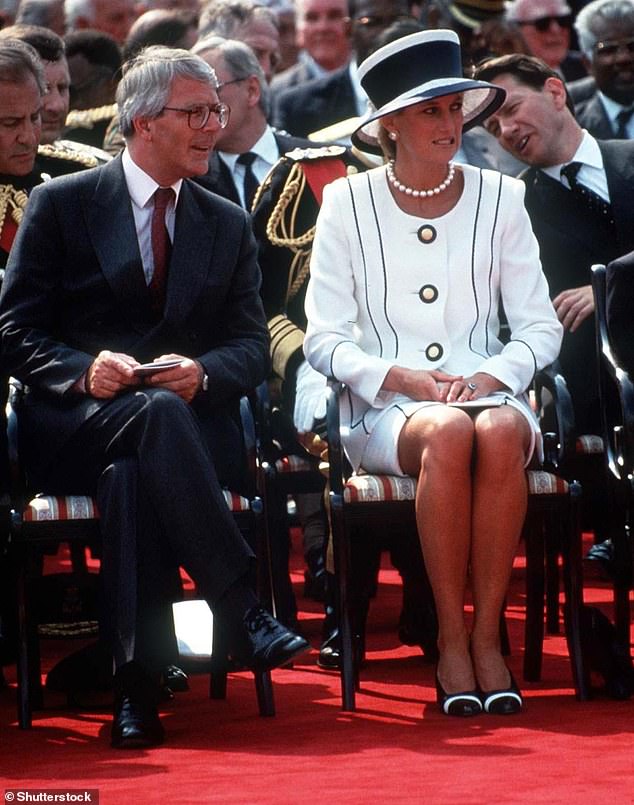
In his biography of Sir John, Anthony Seldon writes that the PM offered advice to Charles and Diana but that it was ‘to no avail’. Above: Sir John and Princess Diana observe VJ Day celebrations in London in 1995
In another scene, Sir John was depicted talking to Charles about the possibility of his mother abdicating.
In October 2022 the real John Major issued a statement condemning his depiction in The Crown.
‘Discussions between the monarch and prime minister are entirely private … not one of the scenes you depict are accurate – in any way whatsoever. They are fiction, pure and simple.’
In 1955, Elizabeth II’s second Prime Minister, Anthony Eden, had to directly intervene when it seemed a possibility that the Queen’s younger sister, Princess Margaret, would marry a divorced man.
Peter Townsend was a former Battle of Britain pilot, and had served as equerry to to both Margaret’s father George VI and, for a short time, to Queen Elizabeth.
In 1952, he divorced his wife on the grounds of her adultery and was keen to marry the Princess.
The Queen would have had to give her permission for the marriage under the terms of the Royal Marriages Act of 1772.
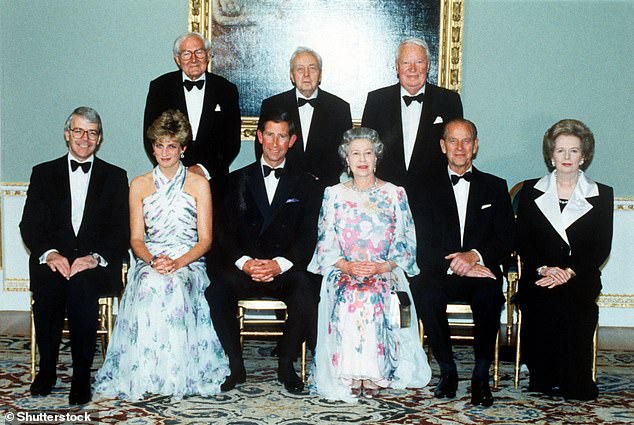
Princess Diana, Prince Charles, Queen Elizabeth, and Prince Philip seen with prime ministers past and present in 1992. From left to right: John Major, Jim Callaghan, Harold Wilson, Edward Heath and Margaret Thatcher
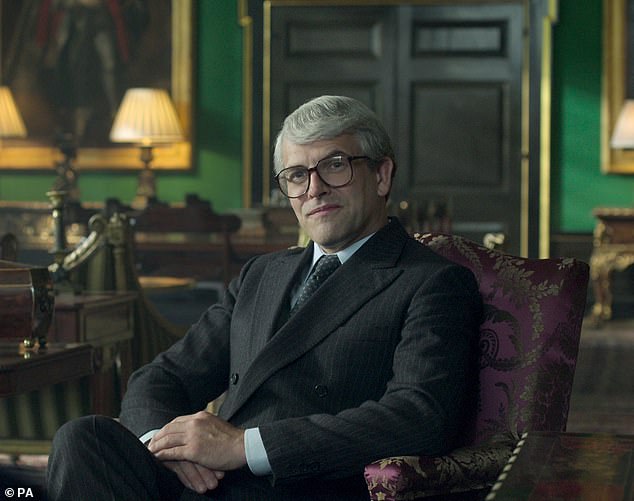
Jonny Lee Miller as prime minister John Major in the fifth series of Netflix production The Crown
Her first prime minister, Winston Churchill, and the Church of England, which opposed divorce, urged her not to.
Instead, Margaret and Townsend were told to wait two years until the princess was 25 years old, the age when, according to the Act, she could choose for herself whether to marry, even if the Queen had refused permission.
This would of course have created a huge public scandal, so Eden, who was himself divorced and remarried, came up with a solution.
This was to amend the Royal Marriages Act so the Queen would not have to give her permission.
Margaret could then marry Townsend, keep her royal title, her civil list payment, and a home in this country.
The only requirement would be for her to renounce her place in the royal line of succession (as well as the places of any children of the marriage).
In the end, Margaret decided not to marry Townsend and Eden’s planned revision of the Act was never needed.
Boris Johnson said in his new memoir, Unleashed, that his ‘manly pep talk’ to persuade Harry to stay was ‘totally useless.’
But when Sir Winston was in his second term as PM, he had more success in urging a senior royal not to abandon the family firm.
The Queen Mother had been widowed at the age of only 51 on the death of George VI and suffered a crisis of confidence, feeling she would not be needed by her daughter and her dynamic husband, the Duke of Edinburgh.
Churchill was staying at Balmoral as a guest of Elizabeth II and asked to see the Queen Mother, who was at nearby Birkhall.
After the visit on October 2, 1952, the Queen Mum wrote to tell her friend Lord Salisbury that the PM ‘was absolutely charming and very interesting, and I realised suddenly how very much I am cut off from “inside” information.’
The old war horse persuaded the grieving Queen that she still had a vital role to play in the monarchy.
Her lady in waiting Jean Rankin noted how her boss had rallied after the visit.
‘I think he must have said things which made her realise how important it was for her to carry on, how much people wanted her to do things as she had before.’
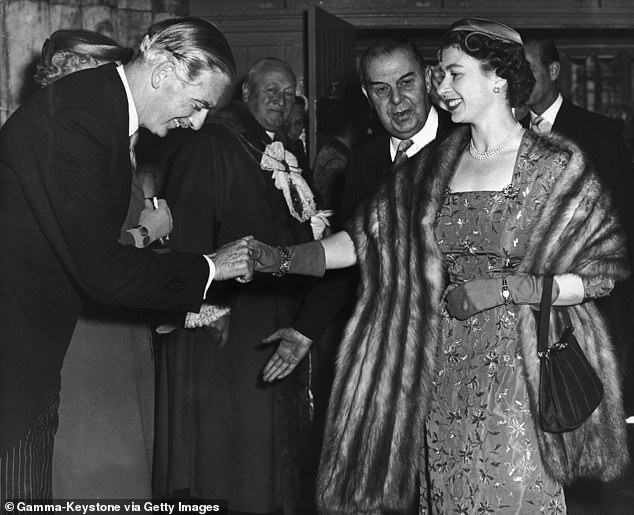
In 1955, Elizabeth II’s second prime minister, Anthony Eden, had to directly intervene when it seemed a possibility that the Queen’s younger sister Princess Margaret would marry a divorced man. Above: Eden shaking hands with the Queen at the Banquet Hall in London, 1956
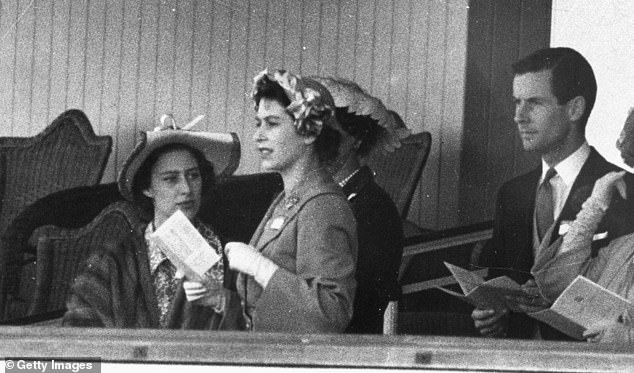
In the end of course, Margaret decided not to marry Townsend and Eden’s planned revision of the Act was never needed as she put duty before love
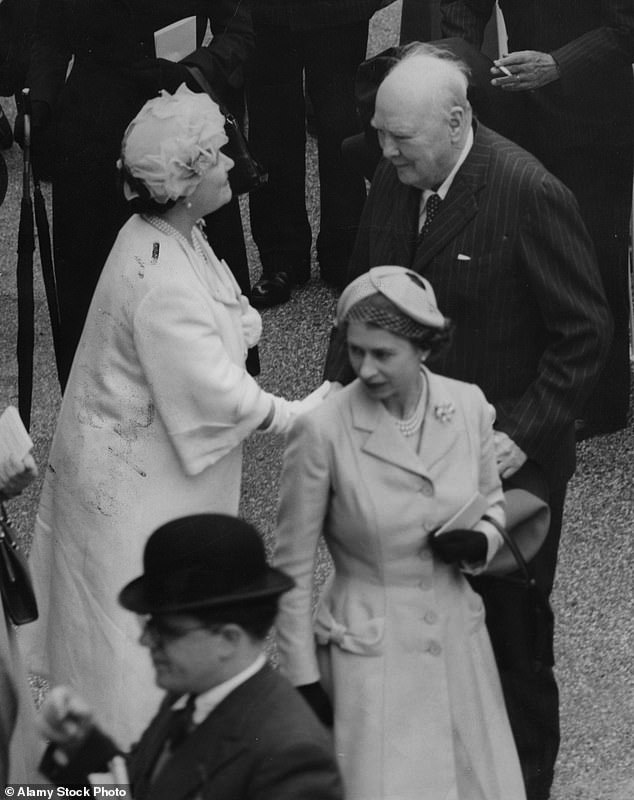
The Queen Mother suffered a crisis of confidence after the untimely death of her ‘beloved Bertie’ and felt she wouldn’t be needed by her daughter and Prince Philip. Winston Churchill persuaded her otherwise and told her she still had a vital role to play in the monarchy
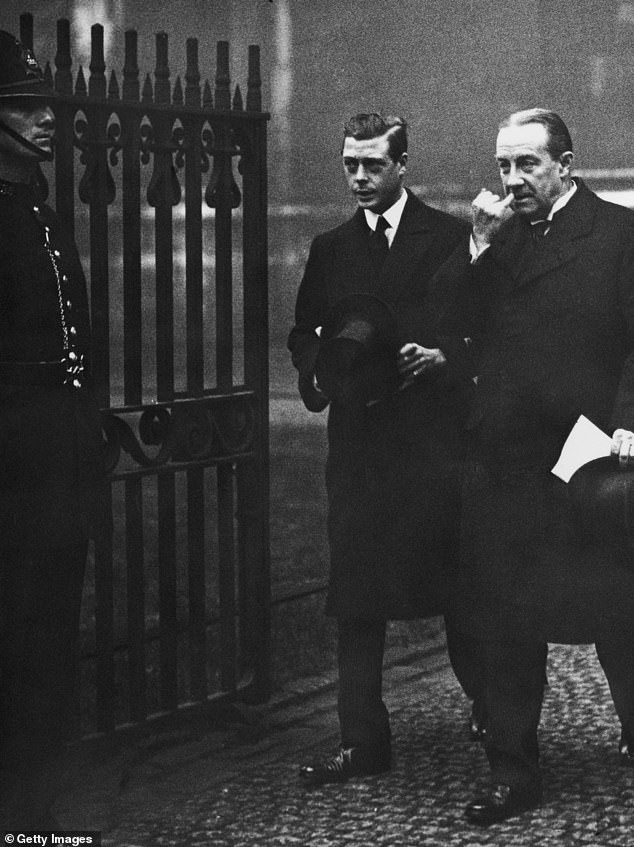
Stanley Baldwin warned King Edward VIII that the British public would not, under any circumstances, accept the idea of a twice-divorced American woman as their Queen
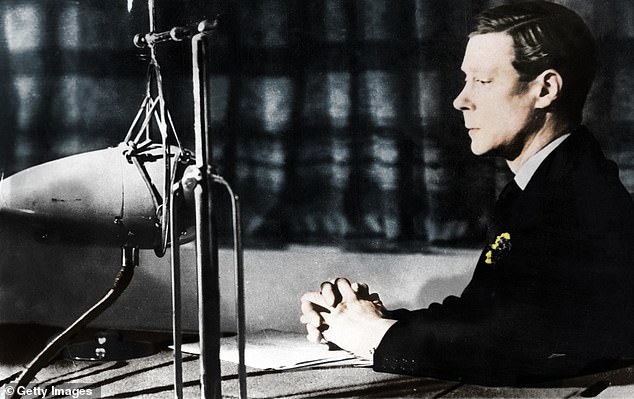
Edward realised that he had no option but to go. Baldwin had firmly steered Edward onto the path to Abdication and exile
While Churchill and Boris were drafted in to urge a senior royal to continue their role in the family firm, an earlier PM counselled the exact opposite.
When Edward VIII, King and Emperor, announced his plans to wed the twice-married American socialite Wallis Simpson, his PM Stanley Baldwin was firmly opposed.
Baldwin warned the king that the British public would not, under any circumstances, accept the idea of a twice divorced American woman as their Queen, and that the Dominion prime ministers on behalf of their territories felt the same.
Edward decided to push for a morganatic marriage so that he could marry Wallis, meaning she would never be queen, merely his consort.
This idea was vetoed by Baldwin, who also blocked Edward’s announcement that he wanted to broadcast directly to his people via the BBC to explain the situation and remind listeners ‘I am still the same man whose motto was Ich Dien – I serve.’
A horrified Baldwin said this was constitutionally inappropriate and would divide the nation.
Edward then realised that he had no option but to go, and so he did then broadcast to the nation to make his Abdication address.
Baldwin had firmly steered Edward onto the path to Abdication and exile.
So while Baldwin won hands down, Boris Johnson had no such luck when he came up against an equally stubborn senior royal, hell bent on having his own way.


